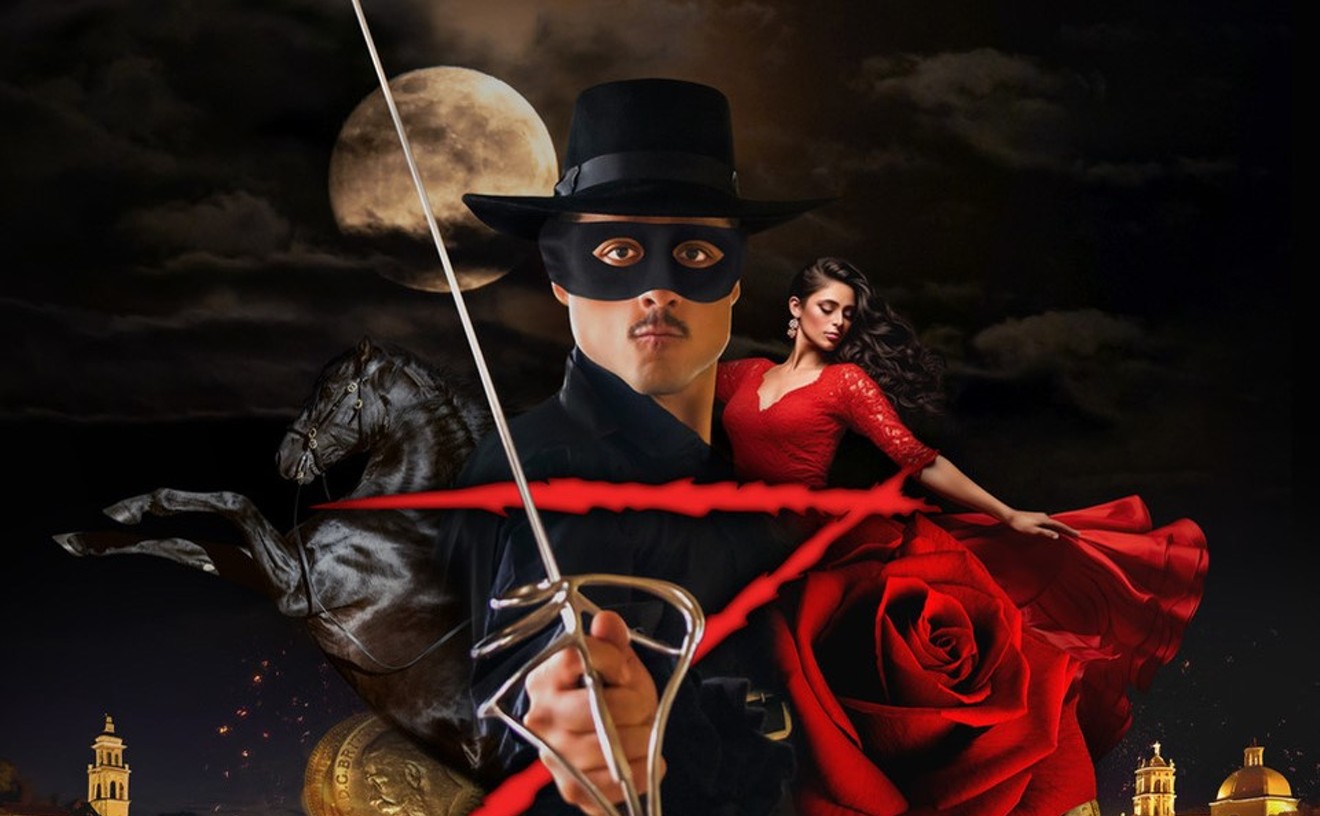R & J is a parenthetical play, one that's played on the sidelines of a white-collar Romeo and Juliet and realized with the lips and eyes and shoulder shrugs of a gifted cast. It's as if we're watching a play unfold not by watching the actors alone, but by watching the audience respond to their performances, each of them a brilliant homage to Shakespeare's hallowed play-within-a-play.
To truly appreciate the beauty of Calarco's (and Dering's) numerous double entendres, a working knowledge of Shakespeare is helpful. But an intimate relationship with the Bard isn't necessary to grasp the genius of a script that calls on its actors to play each scene on two levels simultaneously. They're four teenaged boys, stifled by the repressive regime of a Catholic boarding school, who meet to read aloud from a banned copy of Romeo and Juliet. As they read the forbidden text, they become the characters in the play, imperceptibly slipping on the emotions of young, "star-cross'd" lovers while exploring their own attractions to and disdain for one another. It's a device that packs a double wallop -- we're not only watching the Shakespeare play, but its effects on the boys who are discovering it for the first time.
The production's widest achievement is the heights its cast reaches. If this were the real world and not an imaginary Catholic boys' school, these lads would be shouting Shakespeare's words in harsh, untrained voices. Instead, they're often spoken in a refined diction that provides a stunning contrast to the gymnastic roughhousing of these tormented teens.
The four schoolboys who take their thrills from reading Shakespeare are evenly divided: Michael Sherwin and Barry Finnegan display a talent for Shakespearean drama that's unlikely in teenagers, but riveting all the same. Thomas Bigley (whose voice was shot on Saturday night, but who still conveyed Will's lyrical prose with great style) and Patrick McGinley are more convincing as youths trying on 16th century prose for size.
The ballroom sequence is all about the passion these boys are resisting; it's the point in the play where the youths stop dodging kisses and give themselves over to the story -- but director Dering is already there, drawing subtle parallels between tormented youth and Romeo and Juliet, the ultimate story of adolescent tragedy. The stage pictures of Dering's Spartan set are completed with his and Sherwin's wonderfully low-tech sound design, executed almost entirely by a chorus who create the sounds of wind storm and heartbeat with just their lungs and their teeth. The production's only flaw is the misplaced comic miming of Juliet's pending death late in the last act. This bit is likable but, bracketed by gloomier scenes, sounds a single discordant note in an otherwise superb production.
E-mail [email protected]










